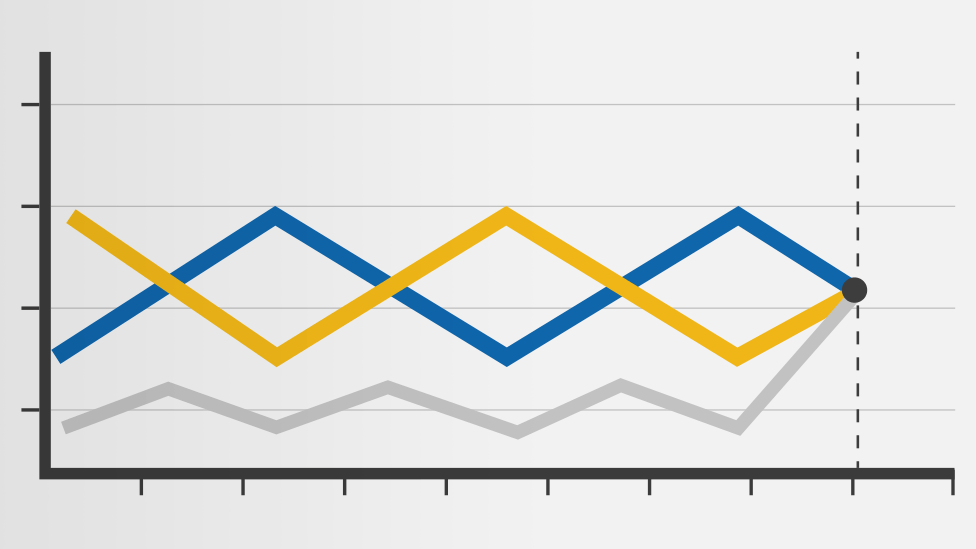EU Referendum: Are the Western Isles the most Eurosceptic part of Britain?
- Published
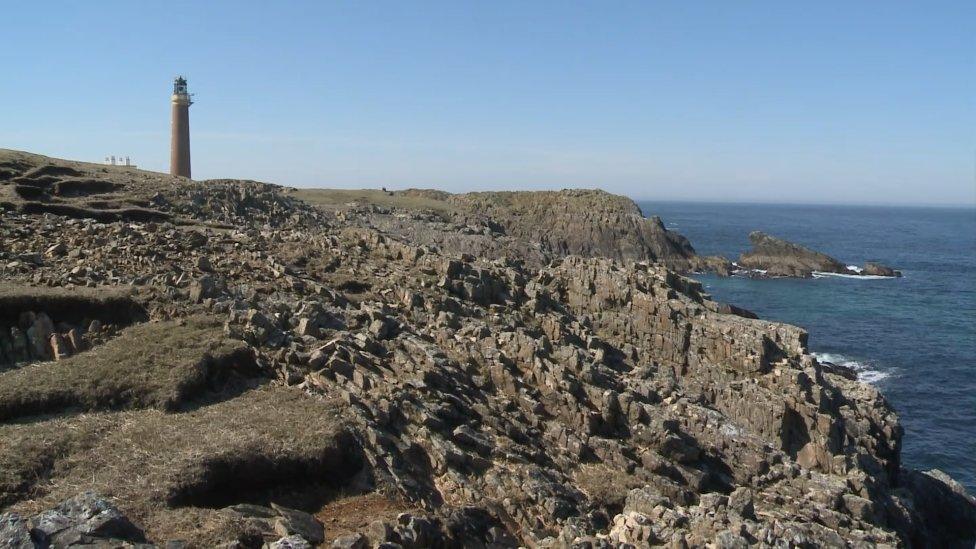
In 1975, when voters last gave their verdict on European membership, the Western Isles returned a decisive "no". Ahead of the EU referendum on 23 June, I visited this region of Scotland to find out if the scepticism still exists.

The red-brick lighthouse towers into a clear blue sky with the ocean stretching before it as far as the eye can see.
This is the Atlantic edge of the European Union. Westwards from the Butt of Lewis, it is next stop America.
Waves crash on to the rocks. Seabirds squabble. There's a tang of salt on the breeze.
The beauty and isolation of this place is striking.
The Western Isles are a world away from decision-making in Edinburgh and London, never mind Brussels.
Yet the EU has a big impact here.
At the Harris Tweed Hebrides mill, the machinery is working at full clatter.
The hard-wearing fabric produced here is exported worldwide - about a third of it to EU countries outside the UK.
Single market access
In a quieter corner of the factory, surrounded by large multi-coloured rolls of tweed, Margaret Ann Macleod shares her concerns about the looming referendum.
As a company director she is worried that a vote to leave the EU could make it harder to access the single market.
"We hope the vote will go for staying within Europe and for staying with what we have," she says. "The ability to trade with our partners and neighbours in Europe."
Fishing is another major industry in the Western Isles that relies on free trade.
Most of the scallops and langoustines landed here are sold to France and Spain.
Yet many in the local fishing industry are fed up with EU regulation under the Common Fisheries Policy, external.
At the Islander Shellfish shop on Stornoway harbour Ronnie Scott is filleting fish with the speed and skill of a man with decades of experience.
Ronnie wants to cut the EU out of deciding who can catch what.
"There are people over in Europe that don't know where we are," he says. "They don't understand our fishing."
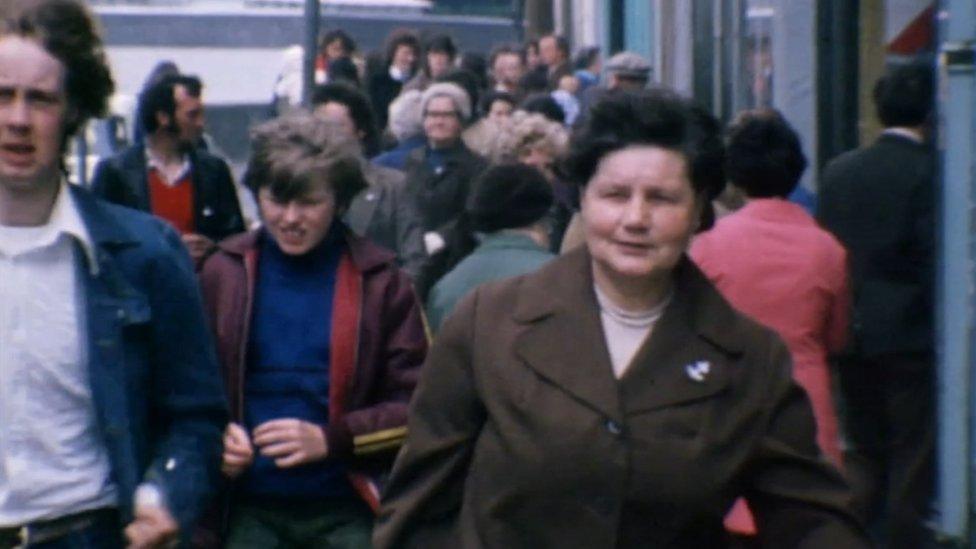
In 1975, people in the Western Isles voted by 70% to 30% against EEC membership
He is frustrated with rules requiring some fish to be thrown back into the sea, forcing him to buy from the Scottish mainland.
Ronnie adds: "It doesn't add up - but we have to do it."
He believes the Western Isles fleet would be better off outside the EU.
"The boats here would be allowed to land what they catch," he says. "A sensible fishing rather than this EU regulation."
Euroscepticism is not new here. It is something of a tradition.
In 1975, when the UK voted firmly in favour of continuing in what was then the European Economic Community, the Western Isles dissented.
It was one of only two regions to vote "no" - along with Shetland. Islanders in the Western Isles were seven to three against.
Forty-one years have passed since that referendum and a great deal has changed in the Outer Hebrides.
At WJ MacDonald butchers in Stornoway, they still make black pudding to a traditional island recipe but now it is afforded EU protection.
Like Champagne or Parma ham, Stornoway black pudding has what is called a geographical indication on its label.
Only blood, fat and oatmeal blended in the capital of the Western Isles is allowed to use the Stornoway brand.
That has boosted sales, according to the butcher Derek Smith but he has wider reasons for backing a vote to remain in the EU.
Small communities
"Our massive infrastructure projects…have all been EU subsidised" he says.
"Would any other government be in a position to fund these in such a rural part of the country?" he wonders, with a doubting look on his face.
The infrastructure he refers to includes roads, causeways and ferry ports that have made the islands far more accessible.
Membership of the EU divides opinion on the Western Isles - Christina MacNeil and Margaret Ann Macleod explain their differing views
One of the best examples is the bridge linking the tiny island of Scalpay to Harris.
It is widely credited for helping to sustain the community on Scalpay, which has fewer than 300 inhabitants.
EU funds have also helped develop a community-owned shop and café on the island.
Yet, even here, it is not hard to find unease with the European Union.
Morag Macleod is a retired academic who was born and brought up on Scalpay and serves on the island shop committee.
She has decided not to vote in the referendum but she is not keen on the EU.
Increased competition
Morag explains: "It's so alien to me, things happening in Brussels and a whole lot of people from Germany and France...deciding what's going to happen here."
Sitting in the garden at Morag's home overlooking Scalpay's pretty fishing harbour, I ask if islanders dislike being told what to do by outsiders.
"I think that's right," she says with a little laughter.
As my travels continue, I explore this theme further with Western Isles councillor Uisdean Robertson, at his home on North Uist.
He couldn't be clearer: "Islanders are very, very resistant to interference from the outside."
"Unfortunately, we tend to get it all the time," he adds with more than a hint of exasperation.
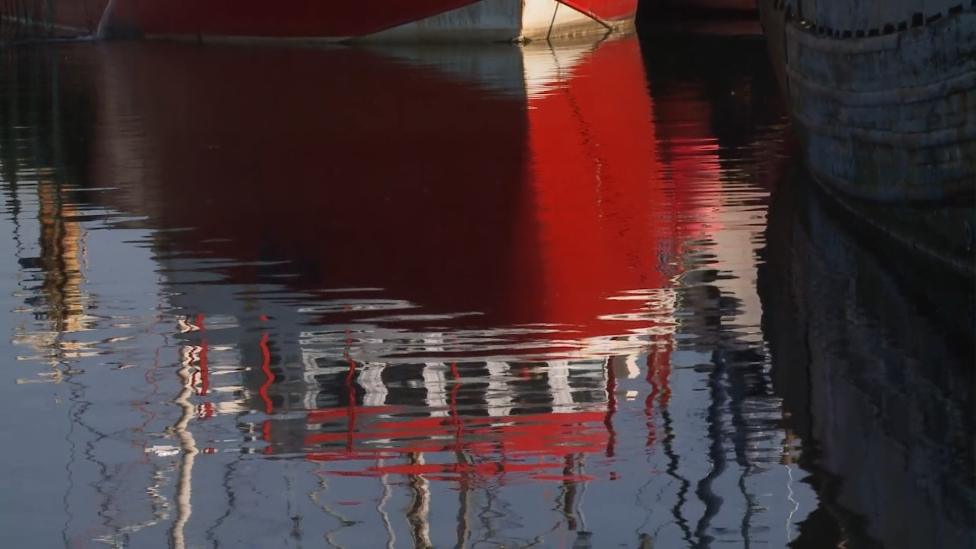
Fishing and fish processing are important industries to these small communities
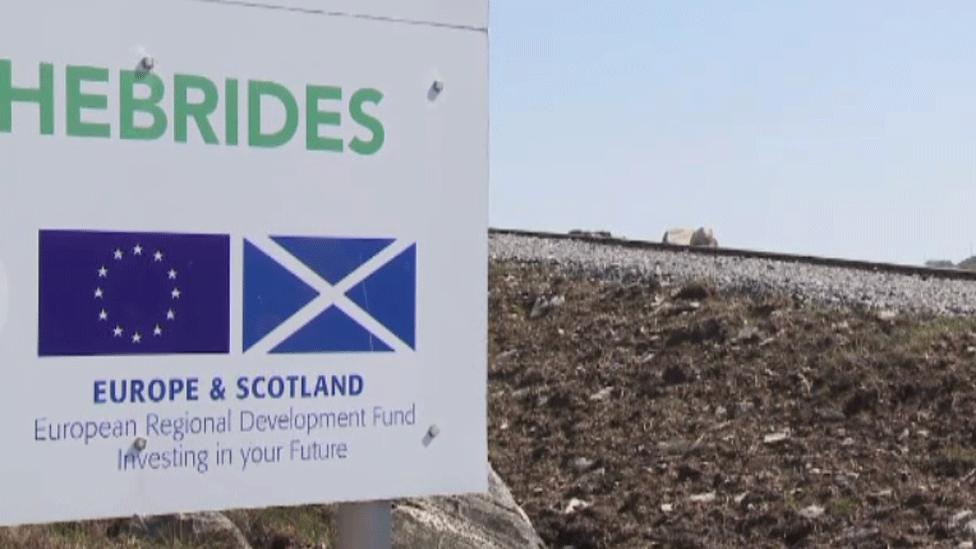
EU funding has helped to build roads and bridges in the Western Isles
Uisdean explains that development cash is harder to come by now that the EU has expanded eastwards.
"The days of manna from Europe have gone, everything's getting more competitive," he says.
Uisdean is minded to vote to leave.
For some, this debate is about identity and where power lies. For others, there's financial calculation.
At the boatyard in Kallin, North Uist, men are painting and patching vessels.
Is there a 'safe option'?
Nineteen year old Connor Ewen is the only one prepared to speak and he tells me the EU referendum has left him "torn".
If he made his living entirely from the sea, he would vote to leave. That, he says, is what many of his fellow fishermen intend to do.
But Connor is also working the land to make ends meet. As a crofter, he receives subsidies under the EU's Common Agricultural Policy.
How fishing, farming and the famous Stornoway black puddings fits into the EU referendum debate.
"No matter how little or how big, they do help a lot of people," he says.
He is worried about what would replace these payments if the UK leaves the EU.
That is why he is thinking of voting to stay. He describes it as the "safer option" before resuming work on his boat.
Further south, on the isle of Barra, there are cousins who have reached different conclusions.
Gerard MacDonald is feeding potatoes to his cows. He's a crofter and oyster farmer and a supporter of the EU.
He told me: "There's a lot of benefit that comes to our community through rural development that occurs through EU funding."
EU matters
Nearby, at Barratlantic's shellfish processing plant, the general manager Christina MacNeil, takes the opposite view.
"On a fisherman's perspective - out," she says. "Because they're not listened to - the fishermen - what their needs are."
At Barra airport, there's barely time to gulp down some coffee before I'm invited to board the 18-seat plane for Glasgow.
We hurtle along the beach, which is the runway here, and rise gently into the sky.
As I look out of the window, it is as clear as the waters that wash the shores below, that the UK's future relationship with the EU really matters on the Western Isles.
- Published30 December 2020

- Published29 April 2016

- Published22 June 2016
